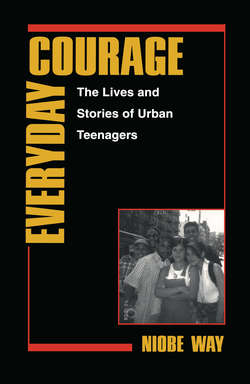Читать книгу Everyday Courage - Niobe Way - Страница 10
На сайте Литреса книга снята с продажи.
1
Interpreting Narratives
ОглавлениеAS I RODE the subway each week to the school during the first year of the study, my mind was filled with questions about the validity, motivation, and limits of my project. What am I doing studying urban youth? Who am I to study them? What are they telling me? How will I represent their stories? Will I get it “right,” and what is the truth? During the same time, I was a doctoral student in psychology, passionately immersed in the academic worlds of feminist, postmodernist, and hermeneutic theory. The perspectives advanced in these theories, loosely representing what Paul Rabinow and William Sullivan term “the interpretive turn in the social sciences,”1 allowed me to eventually answer my gnawing questions. They offered me a window of clarity in the midst of my confusion. Feminist theory and postmodern thought, in particular, provided me with ways to make sense of my research project that resonated with my own perspectives on the world. They influenced not only how I conceived the project, but also how I analyzed the interview data, and ultimately, depicted the teens in this book. For this reason, it is critical for me to describe, over the next few pages, the beliefs held within this interpretive turn that shaped both the form and content of my study. Laying out the theoretical framework of my study is essential for understanding the teens’ stories that follow.
Form
